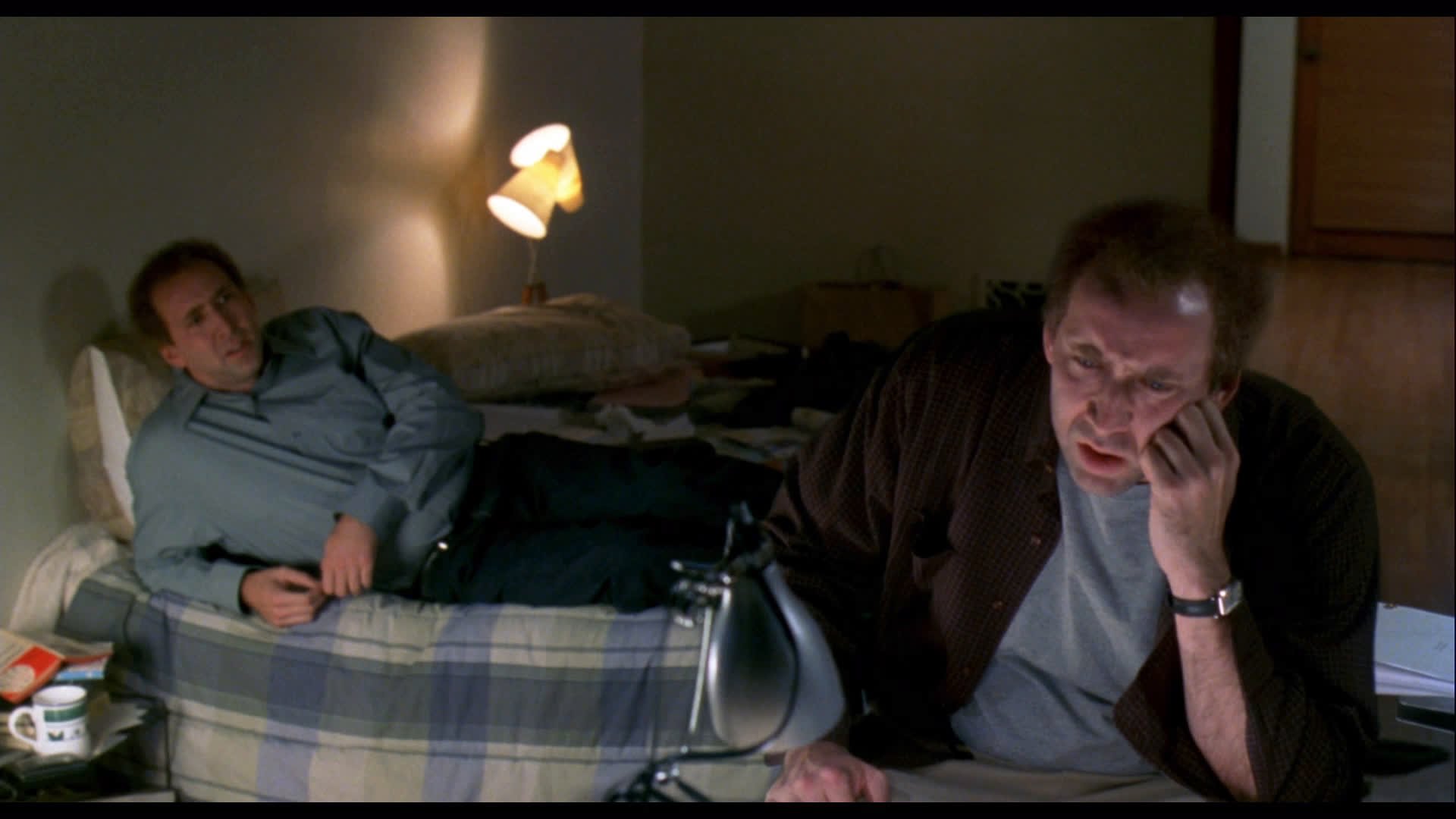I’m looking at the blank screen in front of me and wondering how to begin my ranting about how much Adaptation floored me. I’ve already written around 3 false starts and 2 middle sections, those of which lie waste in some virtual trash bin in a far away data storage centre, forever lost to me. I have already made an excuse to myself that Adaptation was a difficult experience to process and so it will be a painful task to write about it. Maybe, I was afraid of my eventual failure of not being able to jot down what I feel, so as to protect my deflated self-esteem, I whispered sweet lies to myself. Aren’t the best lies those which we tell ourselves every day to be happy?

When Kaufman (Nicolas Cage) agrees to adapt “The Orchid Thief” by Susan Orleans (Meryl Steep) as a screenplay for a movie, the creative juices do not flow. The essence is not there, the structure was missing and something was just not adding up. He plans to acquaint the author in order to find a way out of his misery and well, things spiral out of proportions. It has been often seen that stronger the desire, the faster it vanishes. The most secret longings can sometimes be erased by the back of the hand and prestige passes faster than sand between the middle of fingers. Spike Jonze constructs Adaptation with a motley of themes ranging from the tiring process of creating something unique, battling with our very own alter egos and the choice of ranking our own righteous self above what others perceive of you.


